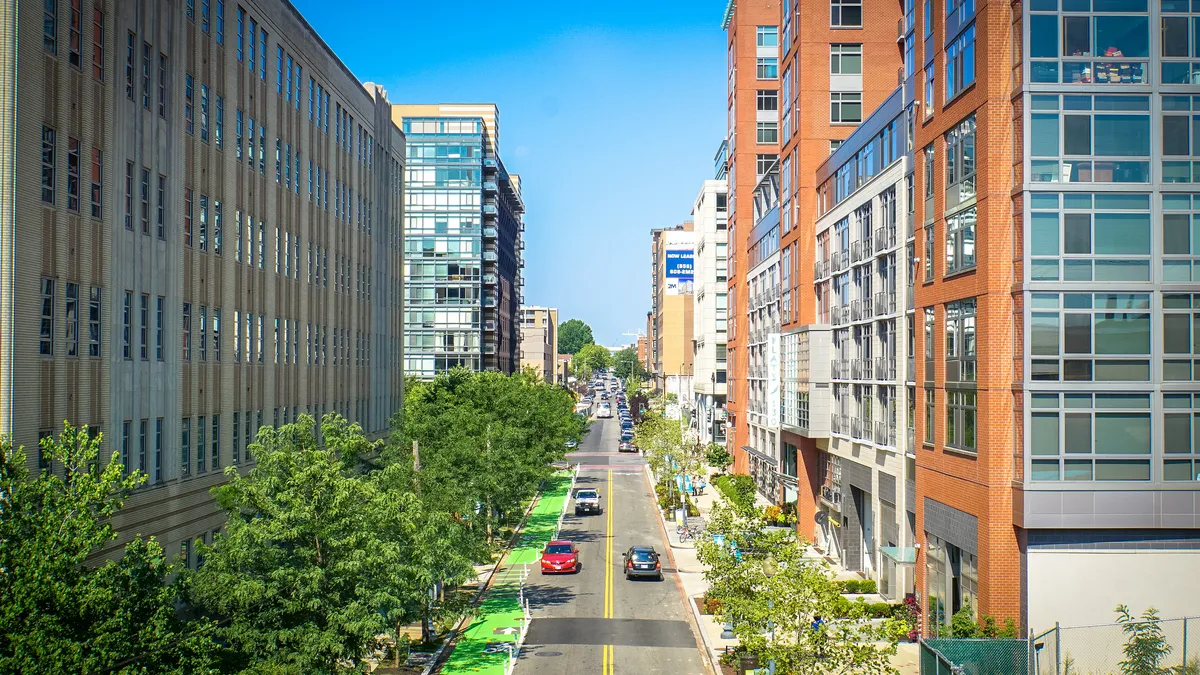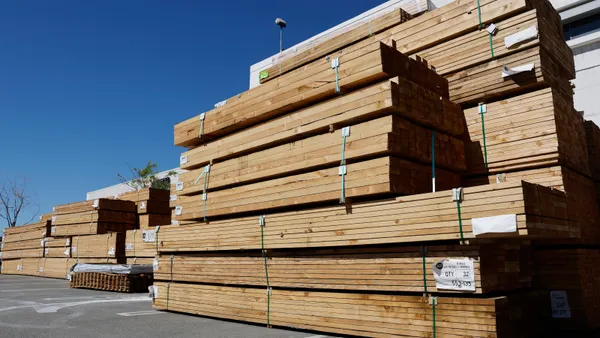Dive Brief:
-
Washington, DC, is witnessing record growth in the residential construction market, according to the 2016-2017 DC Development Report from the Washington, DC Economic Partnership and CBRE.
-
There were more than 14,800 units under construction or large-scale renovation as of August 2016, up from 13,294 units a year earlier. For the year-end, it is expected that 6,524 residential units will have been delivered, the best since the group started tracking the data in 2001. It is expected that 8,250 units will be delivered in 2017.
- Just under half (45%) of the new units are in three neighborhoods: Capitol Riverfront, NoMa/Union Market and Southwest. JBG has been the most active developer in the last five years while Clark Construction Group has been the most active general contractor during that period.
Dive Insight:
The nation’s capital is currently undergoing a residential construction boom as demand flourishes, driven in part by an influx of young professionals moving to the area. Much of the new building stock comprises apartments and condominium buildings. Many of these new residents are renting in the wake of rising prices, as the burden of student debt and, over the past few years, limited job growth, is crippling their ability to secure down payments. It’s a trend that is being seen in many areas of the country.
Another pattern developing in DC and other urban centers is renters increasingly looking for properties that are close to public transportation and other amenities. Last week, Comstock Homes of Washington unveiled plans to team up with real estate investment company Stratford Capital Group for a multifamily housing project at the Shady Grove Metro Station in suburban DC. It comes as a higher rate of investment is expected from properties in walking distance to Metro stations compared with those in driving distance to the rail network.
The rise in residential construction in the nation’s capital has sparked a push by city officials to levy a tax on downtown apartments. Last month, a bill before the D.C. Council outlined plans for a mandatory assessment on multifamily buildings and an optional fee for condo associations. The measure has the potential to drum up around $780,000 annually for the Downtown Business Improvement District.
For more housing news, sign up for our daily residential construction newsletter.













